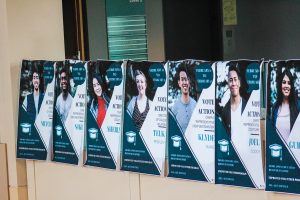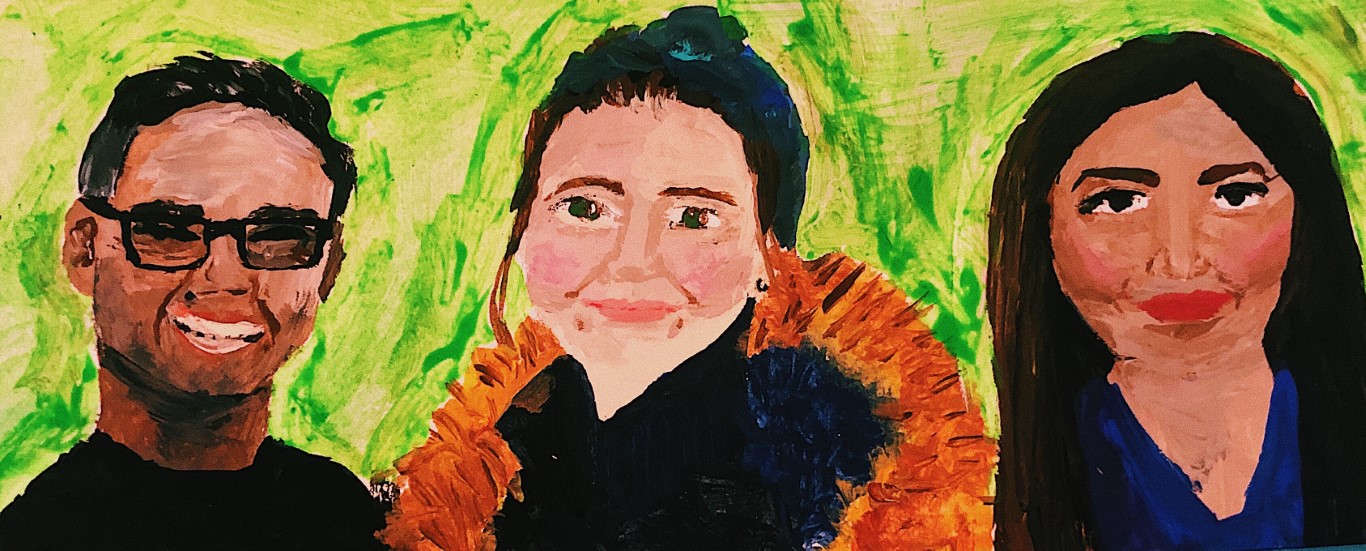
A brief primer on the ‘Team Action’ slate and the current state of our U-Pass system
By Bex Peterson, Editor-in-Chief
This week students will be able to participate in electing Douglas Students’ Union representatives and deciding the future of the school’s U-Pass agreement with the province and TransLink.
The candidates for this year’s election are all members of the “Team Action” slate and are running entirely unopposed for all positions. Nominations for candidacy closed on February 1.
“Students typically organize themselves to run together and all students are welcome to put their names forward to run for the Board of Directors given they meet the requirements set out in the DSU Bylaws,” said College Relations and Membership Outreach Coordinator Tracy Ho, in an email to the Other Press.
According to the DSU elections page, “Any current member of the Douglas Students’ Union may nominate themselves as a candidate for election. Candidates for Constituency Representatives must also belong to the constituency group they are seeking to represent, for example candidates for the Women’s Representative must self-identify as women or candidates for the Indigenous Students’ Representative must be Indigenous.”
Telka Pesklevits, who is running for Director of College Relations, explained Team Action’s platform in an email to the Other Press.
“Team Action wants to stay focused on services, advocacy, and events,” said Pesklevits.
Their mandate is separated into three main areas of focus: events, services, and campaigns. Events encapsulated popular DSU initiatives such as the fall beverage garden social, monthly pub nights (and similar events for all ages), and free food events. Services covered improving their volunteer programs; helping to combat food insecurity among students through the college’s emergency food bank service; incorporating the new Anvil Centre into Douglas activities to reach the students who attend classes there; utilizing newly renovated spaces; and promoting the new legal aid line available to students. For campaigns, Team Action will continue to promote the “Open Textbooks” campaign; advocate for a tuition fee increase cap on international student fees; encourage students to vote in the upcoming federal election; and campaign the provincial government to eliminate interest on student loans.
“We will promote multiple other campaigns [as well] that are currently in the works at the provincial level such as Grants not Loans and Fund the Future,” said Pesklevits.
Regarding the U-Pass referendum, the college’s current two-year extension on a renewed 2013 U-Pass BC program agreement will be expiring soon. According to an online document outlining the platforms of the DSU candidates and the Yes Campaign for the referendum, “The Province and TransLink are proposing a new five-year agreement starting in May 2020 at $42.50/month, followed by annual increases of two percent until April 2025. This means that the cost to students would only be $46/month (which is only $5/month more).”
According to the Yes Campaign, entering another five-year agreement “will not only keep the cost of the U-Pass lower, but also make it predictable, unlike the price increases faced by the general public.”
There is no registered No campaign for the referendum.
Students are encouraged to vote in the concourse at the New West campus, the AB atrium at the Coquitlam campus, and the seventh floor of the Anvil Centre. Voting times are available on the DSU elections page on their website. According to the website, “students must show valid Douglas College ID or valid government-issued ID to be eligible to vote.”


